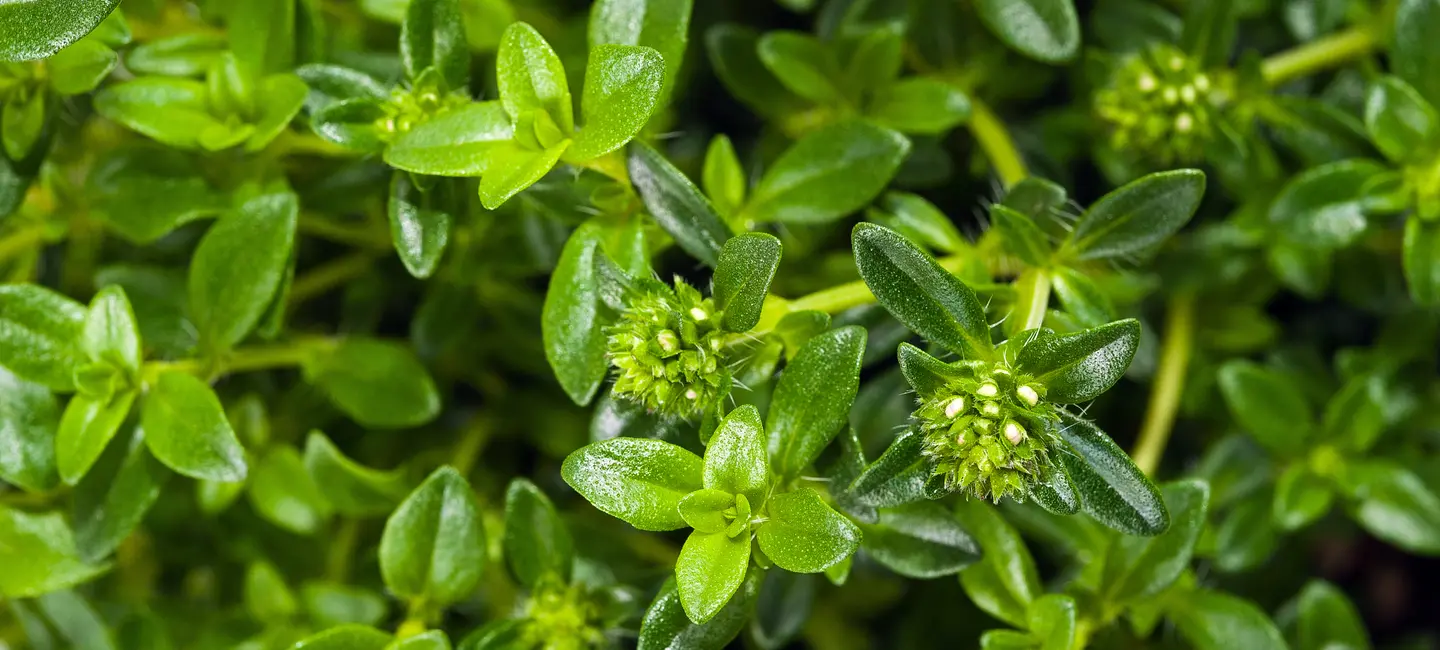
Summer savory is a plant. The leaves and stem are used to make medicine.
People take summer savory for cough, stomach pain, gas (flatulence), diarrhea, loss of appetite, and many other conditions, but there is no good scientific evidence to support these uses.
In foods, summer savory is used as a culinary spice. The oil is used as a flavoring agent.
Is It Effective?
NatMed Pro rates effectiveness based on scientific evidence according to the following scale: Effective, Likely Effective, Possibly Effective, Possibly Ineffective, Likely Ineffective, Ineffective, and Insufficient Evidence to Rate.
- Cough.
- Diarrhea.
- Gas (flatulence).
- Increasing sex drive in healthy people.
- Indigestion (dyspepsia).
- Insect bites.
- Loss of appetite.
- Nausea and vomiting.
- Sore throat (pharyngitis).
- Stomach pain.
- Thirst in people with diabetes.
- Other conditions.
More evidence is needed to rate the effectiveness of summer savory for these uses.
Is it Safe?
The chemicals in summer savory are thought to decrease muscle spasms and kill bacteria and fungus.
When taken by mouth: Summer savory is LIKELY SAFE in food amounts. It's POSSIBLY SAFE for most people when taken in usual medicinal amounts.
When applied to the skin: Summer savory is POSSIBLY SAFE when the diluted oil is applied to the skin. The concentrated, undiluted oil is POSSIBLY UNSAFE. It is very irritating and should not be used.
Special Precautions & Warnings:
Pregnancy and breast-feeding: There isn't enough reliable information to know if summer savory is safe to use when pregnant or breast-feeding. Stay on the safe side and avoid use.
Surgery: Summer savory might slow blood clotting. There is concern that summer savory might increase the risk for bleeding during and after surgical procedures. Stop using summer savory at least 2 weeks before a scheduled surgery.
Medications that slow blood clotting (Anticoagulant / Antiplatelet drugs)
Interaction Rating=Moderate Be cautious with this combination.
Summer savory might slow blood clotting. Taking summer savory along with medications that also slow blood clotting might increase the chances of bruising and bleeding.
Some medications that slow blood clotting include aspirin, clopidogrel (Plavix), nonsteroidal anti-inflammatory drugs (NSAIDs) such as diclofenac (Voltaren, Cataflam, others), ibuprofen (Advil, Motrin, others), naproxen (Anaprox, Naprosyn, others), dalteparin (Fragmin), enoxaparin (Lovenox), heparin, warfarin (Coumadin), and others.
Herbs and supplements that might slow blood clotting: Using summer savory along with other herbs and supplements that can slow blood clotting might increase the risk of bleeding in some people. Some of these herbs and supplements include angelica, clove, danshen, garlic, ginger, ginkgo, Panax ginseng, and others.
There are no known interactions with foods.
The appropriate dose of summer savory depends on several factors such as the user's age, health, and several other conditions. At this time there is not enough scientific information to determine an appropriate range of doses for summer savory. Keep in mind that natural products are not always necessarily safe and dosages can be important. Be sure to follow relevant directions on product labels and consult your pharmacist or physician or other healthcare professional before using.
Ajedrea de Jardín, Bean Herb, Bohnenkraut, Calamintha hortensis, Herbe de Saint Julien, Poivrette, Sarriette Commune, Sarriette d'Été, Sarriette des Jardins, Satureja hortensis, Savory.
Information on this website is for informational use only and is not intended to replace professional medical advice, diagnosis, or treatment. While evidence-based, it is not guaranteed to be error-free and is not intended to meet any particular user’s needs or requirements or to cover all possible uses, safety concerns, interactions, outcomes, or adverse effects. Always check with your doctor or other medical professional before making healthcare decisions (including taking any medication) and do not delay or disregard seeking medical advice or treatment based on any information displayed on this website.
© TRC Healthcare 2024. All rights reserved. Use and/or distribution is permitted only pursuant to a valid license or other permission from TRC Healthcare.
